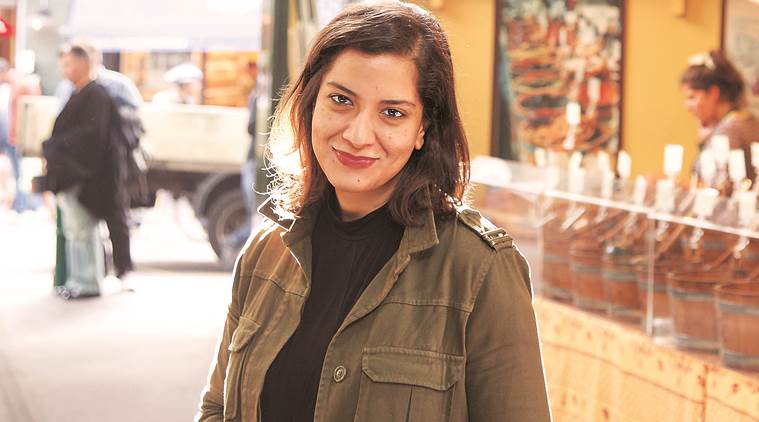Interview: Sanam Maher author of ‘The Sensational Life and Death of Qandeel Baloch’
A book explores the life and death of Pakistani model and social media star Qandeel Baloch

Sanam Maher. (Express photo by Shehrezad Maher)
Pakistani model and social media star Qandeel Baloch shot to fame after she promised to strip for cricketer Shahid Afridi; that is if he clinched a match against India. She also grabbed eyeballs when she proposed marriage to veteran cricketer Imran Khanwhile his divorce proceedings were being reported, and put up many ‘bold’ videos on social media, often talking of headaches and sleeplessness in them. She shot most of these in her bedroom. She later saw herself as a feminist who was vilified for having progressive views and was allegedly murdered by her brother in July 2016 in an act of ‘honour killing’. Karachi-based journalist Sanam Maher, in a book titled ‘The Sensational Life and Death of Qandeel Baloch’ (Rs 599, Aleph Book Company) has now tracked Baloch’s life — from living in a small village to finding stardom as Pakistan’s first social media phenomenon. Excerpts from an interview:
Qandeel was laughed at when she was alive, but death made her a feminist icon. What does her death mean to Pakistan?
Qandeel’s death was different as there was a sense of having known her. Many of us engaged with her online, whether that was to bait her, shame her, secretly watch her videos at night, or share her videos with friends, imitate her and make a meme of her. It was also incredible to see Pakistani women engage with the subject of honour killing very vocally. They felt they could not stay silent on how a Pakistani woman can and should behave. Pakistan is notably obsessed with its ‘image’, and the question of who is good enough to represent the nation. It is manifesting itself right now as women talk about harassment or add their voices to the #MeToo movement, only to have their detractors accuse them of trying to “shame” Pakistan.
You have not approached this book in the usual biography style.
I wanted to focus on our role as an audience in her story. The book tells her story but also uses each part of her life to open up a story about Pakistan. When I looked at her fame as a viral star, I met Arshad Khan aka the Chaiwallah, as well as those who patrol our activities online and censor us, and others who are determined to keep us safer online. Meeting everyone from trolls and hacktivists to Nighat Dad, the creator of Pakistan’s first cyber harassment hotline, I learned how our offline tendencies, such as our kneejerk reactions to women who don’t behave, look or talk like we expect them to, are creeping online. I also met her friends and family and those who were glad to be rid of her, while tracking her movement from the village to the women’s shelter where she sought refuge when she left her husband.
What were the challenges that you faced while working on this book?
Everything I was learning about Qandeel was second-hand information, and it was repeated so many times, particularly when it came to the principal characters in her life, such as her manager Mec or her parents. Initially, I felt very handicapped, but then I realised that even if I had met her, it probably would not have helped my understanding of her. Qandeel was a chameleon, and she presented different parts of herself to different people. She is still a cipher to me. Also, I did not want to cater to those readers who want all the salacious details. When the details of her real life came forward, it was by force — she never wanted to reveal her real name, or that she had a son and an ex-husband. I hope that my readers leave knowing a bit more about themselves and the place we’re living in.
You’ve kind of lived with Qandeel post her death. What is your reading of her life?
I want to be very careful about reimagining Qandeel as many people have — she has been recast as a feminist by those who had previously criticised her and ignored her appeals for help when she was receiving death threats, and praised as a symbol of women’s empowerment and called a modern, liberal Pakistani woman of our time. It is easy to put her on a pedestal now, but it is important to never forget the living, breathing heart of any story about her: a woman who was funny, catty, sometimes bitchy, sometimes cruel, charming, who did very well at school and loved to play with the boys even when her mother scolded her, a woman who had played dress-up in her brother’s clothes and who desperately wanted to learn martial arts. She was a jumble of contradictions, and the more I got to know about her, the greater was the loss I felt.
For all the latest Lifestyle News, download Indian Express App






















 The cover of her book The Sensational Life and Death of Qandeel Baloch.
The cover of her book The Sensational Life and Death of Qandeel Baloch.
No hay comentarios:
Publicar un comentario